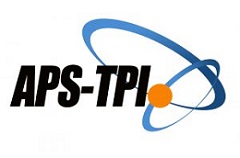Implementing a Cooperative E-Learning Model by Virtual Interviews with Native Speakers
Abstract
This study aimed to define the impact of the cooperative learning model through virtual interviews with native speakers on learning outcomes and student perceptions in English course. This strategy is applied to overcome obstacles in the absence of offline learning (face-to-face in class) during the covid-19 pandemic; thus, online learning methods need to be modified to optimize student ability in English. A total of 135 students were given a questionnaire to determine their opinion about the virtual interviews and their learning progress. Half of the students taught through the virtual interview with native speakers (experimental group) and the others without native speakers (control group). Results showed that both groups showing increases in speaking confidence and their perception of the learning process, but the experimental group’s mean percentage was higher than in the control group. Therefore, the cooperative learning model's implementation can lead to positive outcomes since they could engage students in the English learning process. The implication of this study calls for the cooperative learning model implementation did not only make students active and motivated in learning, but also can improve the effectiveness and quality of learning.
Keywords
Full Text:
PDFReferences
Adi, A. N. (2018). Pengembangan Aktivitas Pembelajaran Daring Melalui Blended Learning. 1–48.
Anora, J. (2020). Modern approaches in teaching speaking.
Ary, D., Jacobs, L. C., Sorensen, C., & Razavieh, A. (2010). Introduction to research in education eight edition. Wadsworth: Cengage Learning.
Authar, N., & Afandi, M. D. (2020). The use of task-based language instruction through online video teleconference application in teaching speaking skill on english department. 9(November), 286–298.
Baron, R. (2020). Students’ Perception on Online Application in Speaking Skill. VELES Voices of English Language Education Society, 4(2), 213–221. https://doi.org/10.29408/veles.v4i2.2543
Erdem, E. (2012). Examination of the effects of project based learning approach on students’ attitudes towards chemistry and test anxiety. World Applied Sciences Journal, 17(6), 764–769.
Fraenkal, J. R., Wallen, N. E., & Hyun, H. H. (2012). Content analysis. How to Design and Evaluate Research in Education. 8th Edn. New York: McGraw-Hill, 477–504.
Hendriani, L. (2018). Three Steps Interview in Teaching Speaking Skill for EFL Learners. VELES Voices of English Language Education Society, 2(1), 38–43. https://doi.org/10.29408/veles.v2i1.607
Jafari, S., Jafari, S., & Kafipour, R. (2020). How Does She Learn English? A Case of a Successful Blind Language Learner. Vision: Journal for Language and Foreign Language Learning, 9(2), 131. https://doi.org/10.21580/vjv10i16727
Kagan, S. (1989). The Structural Approach to Cooperative Learning.
Kassem, M. A. M. (2018). Improving EFL Students’ Speaking Proficiency and Motivation: A Hybrid Problem-based Learning Approach. Theory and Practice in Language Studies, 8(7), 848. https://doi.org/10.17507/tpls.0807.17
Kolawole, E. B. (2008). Effects of competitive and cooperative learning strategies on academic performance of Nigerian students in mathematics. Educational Research and Reviews, 3(1), 33–37.
Maca, S. (2020). Teaching English Speaking Skill through Pair and Group Interview Techniques. Ethical Lingua: Journal of Language Teaching and Literature, 7(2), 329–337. https://doi.org/10.30605/25409190.192
McCombs, B. L. (1994). Strategies for assessing and enhancing motivation: Keys to promoting self-regulated learning and performance.
Merdekawati, K. (2019). Penerapan pembelajaran proyek berbasis fenomenologi pada matakuliah perkembangan peserta didik. Refleksi Pembelajaran Inovatif, 1(2), 115–122. https://doi.org/10.20885/rpi.vol1.iss2.art2
Minister of Education and Culture of the Republic of Indonesia. (2014). Peraturan Menteri Pendidikan Dan Kebudayaan Republik Indonesia Nomor 49 (11 ayat 1).
Ningtyas, E. S., & Wuryani, E. (2017). Penerapan Model Pembelajaran Kooperatif (Cooperative Learning) Tipe Make-A Match Berbantuan Media Komik Interaktif Untuk Meningkatkan Aktivitas Belajar Dan Hasil Belajar IPS. Jurnal Pendidikan Surya Edukasi (JPSE), 3(1), 66–74.
Nugroho, B. H. (2019). Efek pembelajaran kooperatif dalam proses pembelajaran dan pencapaian tujuan pembelajaran pada mata kuliah pharmaceutical engineering. Refleksi Pembelajaran Inovatif, 1(2), 136–146. https://doi.org/10.20885/rpi.vol1.iss2.art4
Nugroho, U., & Edi, S. S. (2009). Penerapan pembelajaran kooperatif tipe STAD berorientasi keterampilan proses. Jurnal Pendidikan Fisika Indonesia, 5(2).
Permanasari, R. C. (2014). Improving Students’ Speaking Skill Through Three Steps Interview Technique(An Action Research of the Tenth Grade Students of SMK Negeri 9 Semarang in the Academic Year of 2013/2014). 1–180.
Purwaningsih, T. (2020). Penerapan blended learning melalui inisiasi pembelajaran online menggunakan website dan Google Hangout dengan melibatkan praktisi industri sebagai upaya peningkatan kualitas pembelajaran di kelas business environment. Refleksi Pembelajaran Inovatif, 1(2).
Ratnawati, S. R., Yuliasri, I., & Hartono, R. (2018). Enhancing the Students’ Speaking Skill Using Three Step Interview and Numbered Heads Together. Language Circle: Journal of Language and Literature, 12(2), 173–181. https://doi.org/10.15294/lc.v12i2.14176
Rohyami, Y., & Huda, T. (2019). Pengaruh cooperative learning dan flipped classroom-cooperative learning matakuliah kimia analisis II terhadap motivasi belajar mahasiswa. Refleksi Pembelajaran Inovatif, 1(2), 147–160. https://doi.org/10.20885/rpi.vol1.iss2.art5
So, H.-J., & Brush, T. A. (2008). Student perceptions of collaborative learning, social presence and satisfaction in a blended learning environment: Relationships and critical factors. Computers & Education, 51(1), 318–336.
Sutisna, A. (2016). Pengembangan Model Pembelajaran Blended Learning pada Pendidikan Kesetaraan Program Paket C dalam Meningkatkan Kemandirian Belajar. JTP-Jurnal Teknologi Pendidikan, 18(3), 156–168.
Tang, C., & Chaw, L. (2013). Readiness for blended learning: Understanding attitude of university students. International Journal of Cyber Society and Education, 6(2), 79–100.
Teng, M. F. (2020). The effectiveness of group, pair and individual output tasks on learning phrasal verbs. The Language Learning Journal, 48(2), 187–200.
Ushioda, E. (2008). Motivation and good language learners. an.
Vygotsky, L. (1978). Interaction between learning and development. Readings on the Development of Children, 23(3), 34–41.
Refbacks
- There are currently no refbacks.





.png)













